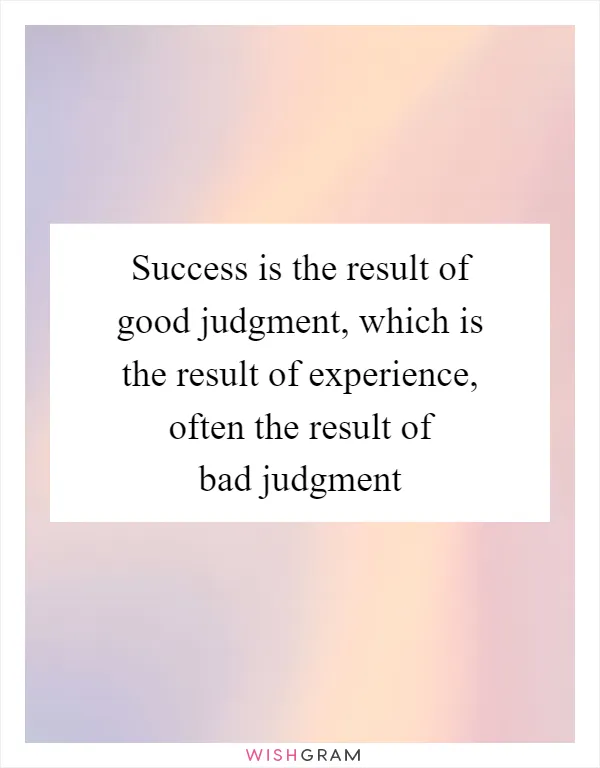Success is the result of good judgment, which is the result of experience, often the result of bad judgment
Success is a concept that has intrigued and motivated individuals for centuries. It is often seen as the pinnacle of achievement, the ultimate goal that many strive to attain. But what truly defines success? Is it merely the accumulation of wealth and material possessions, or is there something more profound behind it?
According to the statement, "Success is the result of good judgment, which is the result of experience, often the result of bad judgment," we can infer that success is not an overnight phenomenon. It is a journey that requires a combination of factors, including good judgment, experience, and even the lessons learned from bad judgment.
Good judgment is a crucial element in the path to success. It involves making wise decisions, considering the potential consequences, and evaluating the available options. It is the ability to discern what is right and what is wrong, what is beneficial and what is detrimental. Good judgment allows individuals to navigate through life's challenges and make choices that align with their goals and values.
However, good judgment is not innate; it is acquired through experience. Experience is the accumulation of knowledge and skills gained from various situations and encounters. It provides individuals with a deeper understanding of themselves, others, and the world around them. Experience allows individuals to learn from their successes and failures, enabling them to make more informed decisions in the future.
Interestingly, the statement suggests that bad judgment can also contribute to success. While it may seem counterintuitive, bad judgment can be a valuable teacher. It is through our mistakes and failures that we often learn the most profound lessons. Bad judgment forces us to reflect, reassess our choices, and make necessary adjustments. It builds resilience, determination, and a greater appreciation for success when it is eventually achieved.
In the context of success, it is important to recognize that failure is not the opposite of success but rather a stepping stone towards it. Many renowned individuals have experienced numerous setbacks and failures before achieving their goals. Thomas Edison, the inventor of the light bulb, famously said, "I have not failed. I've just found 10,000 ways that won't work." His persistence and ability to learn from his mistakes ultimately led to his groundbreaking success.
Success is not solely measured by external accomplishments but also by personal growth and fulfillment. It is about finding purpose and meaning in one's endeavors. It is the result of perseverance, dedication, and the willingness to learn from both positive and negative experiences.
